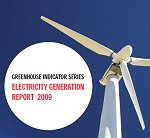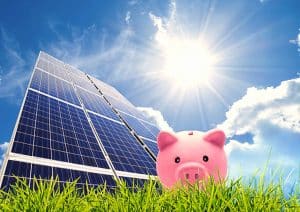Despite a continued dependence on coal-fired power generation, Australia’s electricity is slowly getting greener – thanks in part to renewable energy
The Climate Group’s Electricity Generation Report 2009; covering Victoria, New South Wales, Queensland, South Australia and Tasmania, found power stations in these states generated 208 million Megawatt hours (MWh) of electricity in 2009, down 2.1 per cent on 2008; and generated 181 million tonnes of greenhouse gas, a drop of 2.4 per cent on the previous year.
The reason for the drops were renewable electricity generation growing by 11 per cent and 8 per cent growth in the use of natural gas. This meant average carbon intensity of electricity fell by over one per cent compared with 2008, to 0.87 tonnes of carbon dioxide per megawatt hour.
However, electricity generation and emissions from some of the country’s most carbon intensive power coal-fired power stations jumped last year – including Victoria’s Hazlewood (16.25 million tonnes carbon dioxide equivalent) and Yallourn W (15 million tonnes).
The top 20 generators of electricity across all 5 states are coal-fired and account for over 90 per cent of total greenhouse gas emissions. The top 10 were responsible for upwards of 70 per cent of total emissions.
Rupert Posner, Australian Director of The Climate Group, said mandated targets for renewable energy were making a difference, but that despite having a smaller overall market share, the carbon intensity of coal-fired electricity actually increased and that this outcome was another justification for setting a price on carbon.
In 2009, the average carbon intensity of coal-fired power generation in was 1 tonne carbon dioxide per MWh – and zero for renewable energy.
Read the full report : Electricity Generation Report 2009 (PDF)







































